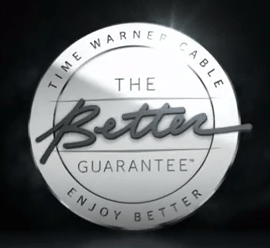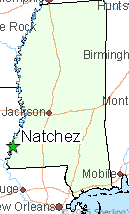 Time Warner Cable is sending apology letters to former customers acknowledging the company’s cable service has not always lived up to expectations, but improvements have been made that ex-subscribers should consider.
Time Warner Cable is sending apology letters to former customers acknowledging the company’s cable service has not always lived up to expectations, but improvements have been made that ex-subscribers should consider.
The effort is part of a $50 million marketing campaign that will push a 30-day money back guarantee and claims their competitors’ promised savings have not materialized.
“The Better Guarantee”-campaign will target customers who have dropped the cable operator in favor of competitors that include AT&T U-verse and Verizon FiOS.
 Although both AT&T and Verizon offer attractive introductory rates, Time Warner Cable says the savings disappear after the promotion expires. The company’s new ad campaign will attempt to entice customers back with offers of lower rates, a $200 reward card, and better service, including faster broadband speeds and new products like online apps for video streaming and home security services.
Although both AT&T and Verizon offer attractive introductory rates, Time Warner Cable says the savings disappear after the promotion expires. The company’s new ad campaign will attempt to entice customers back with offers of lower rates, a $200 reward card, and better service, including faster broadband speeds and new products like online apps for video streaming and home security services.
The New York Times reports the campaign was announced one week before the cable operator releases its latest fourth quarter earnings, which may show a growing number of customers canceling their cable television service. Jeffries & Company forecast Time Warner will report 140,000 subscribers lost during the last quarter, up from 129,000 in the same quarter of 2011.
Customers are invited to sample Time Warner’s offerings for 30 days. If they don’t like the service, the company will send their money back.
That may not be enough. The American Consumer Satisfaction Index has top-rated Verizon FiOS for three years in a row. Time Warner Cable received a below average, but improving rating.
[flv width=”640″ height=”380″]http://www.phillipdampier.com/video/TWC The Better Guarantee 1-21-13.flv[/flv]
Time Warner Cable’s new television ad promoting its “Better Guarantee.” (1 minute)


 Subscribe
Subscribe Cable subscribers in Natchez, Miss. are scratching their heads wondering why AT&T will neither confirm nor deny whether its fiber to the neighborhood U-verse service is coming to a neighborhood near them.
Cable subscribers in Natchez, Miss. are scratching their heads wondering why AT&T will neither confirm nor deny whether its fiber to the neighborhood U-verse service is coming to a neighborhood near them.



